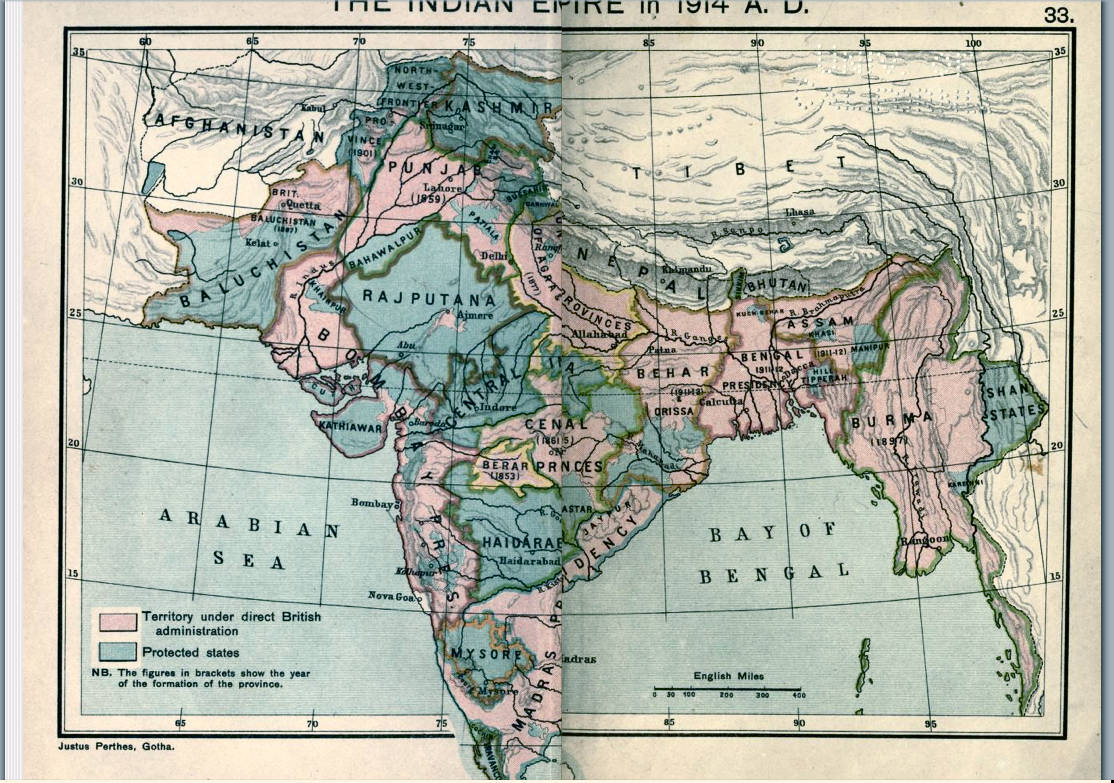You know, I've always had the impression that the British were somehow completely isolated from the Indian populace when they were occupying the land, and had no interaction with Indian cuisine or culture. It's quite interesting to know that this was not necessarily the case.
Are you open with telling us more about your great-uncle and Great grandad's time in India as it sounds quite interesting.
Basically what
@IndefatigableRN said. The Indian Civil Service always operated through Indian subordinates, while to get a Commission in the regular Indian Army required the ability to learn at least one of the main Indian languages. British Merchants and bankers in India had to get along with Indian equivalents and so on.
Even in the higher social circles the staff of domestic residences were locals and every such British child born in India would have an Indian "nanny" equivalent.
A District Officer might be the only European in a large area and the Imperial Representative at a Princely State even more isolated. And responsible for ensuring the local ruler didn't break the unwritten rules. Children of said rulers often were sent to British boarding schools. (An Indian Prince or Princess being a staple of stories in such settings.)
Social interactions in the Raj were greater and more nuanced than in popular literature or dramas. High social class could to an extent trump race. As could wealth.
The one Big NoNo was sexual relations between a British (or European) women and Indian men. Liasons the other way round was of course fine, even though marriages were disapproved of. Women coming out in the annual "Fishing Fleet" were the brides that officers etc were expected to pursue.
ps the above applies mainly to the period of the Raj, though elements would be the same earlier in the nineteenth century under the East India Company. Before then social relations were more fluid.
ETA For clarity, none of the above implies that British rule in India was anything other than exploitation or that the British in India weren't racist. Just that there were nuances where cooperation was feasible between firms and individuals. And that for the families most involved, long term multi-generational residents, their knowledge of India was deeper than how it is often portrayed.



